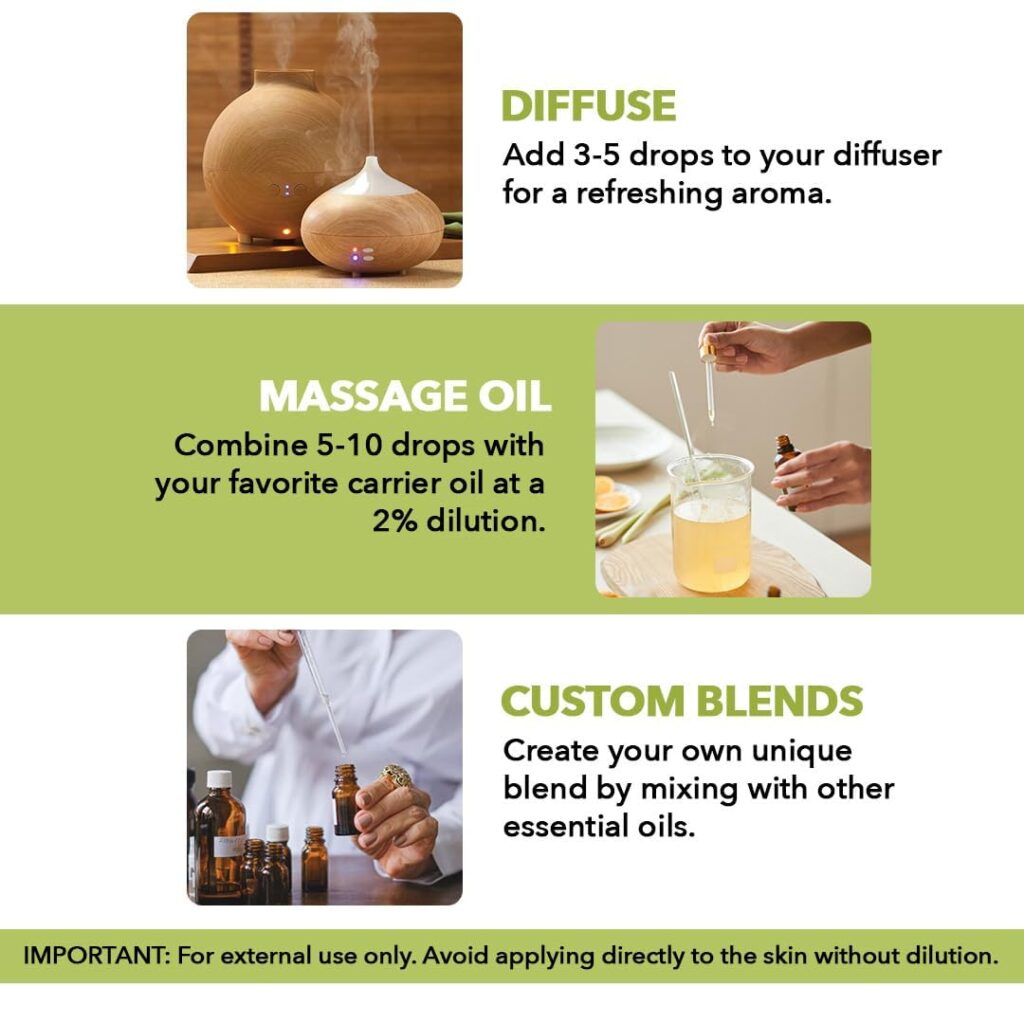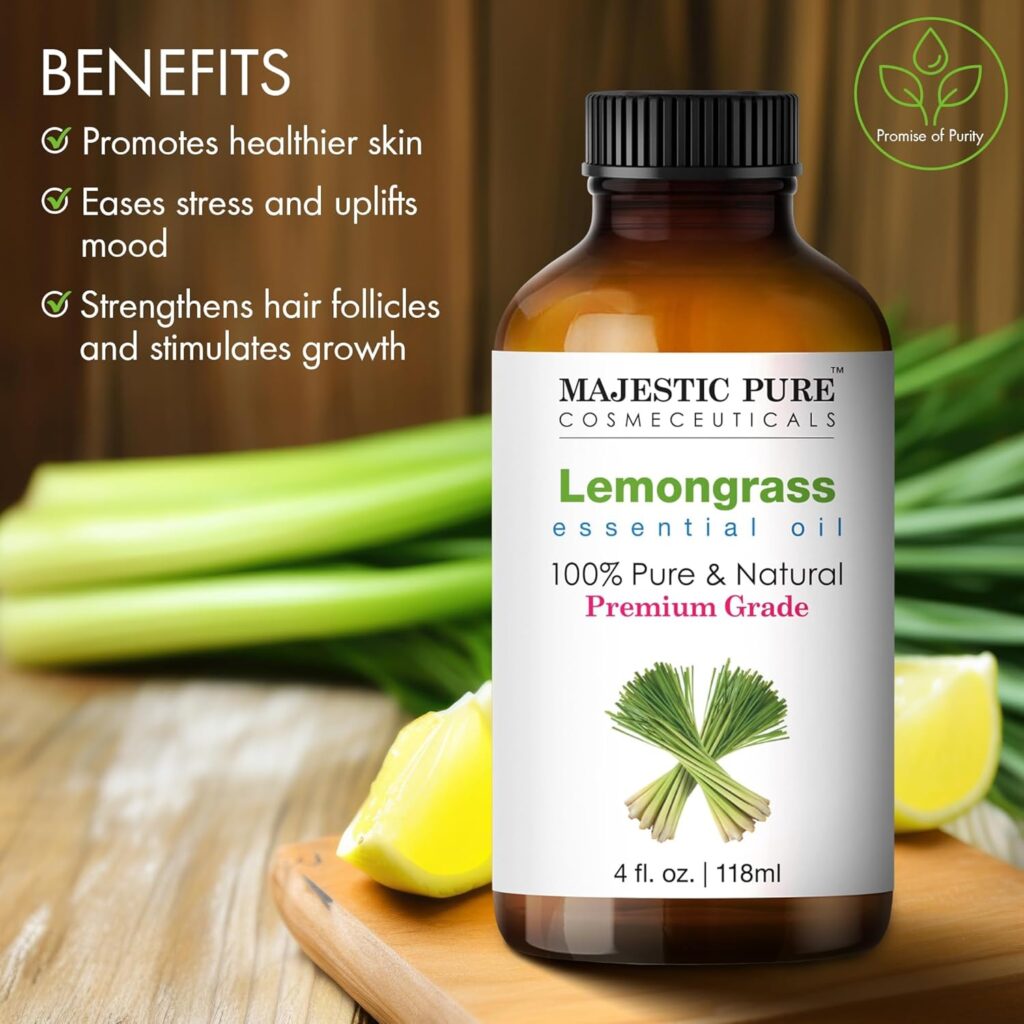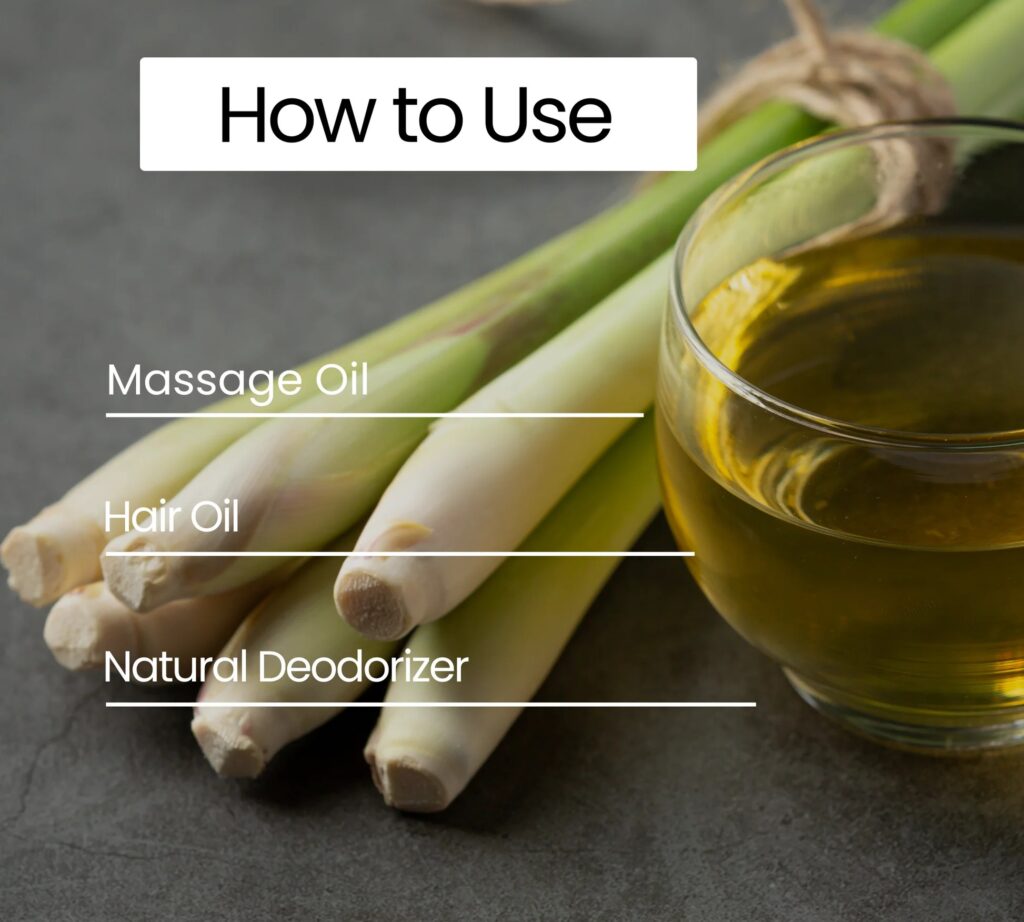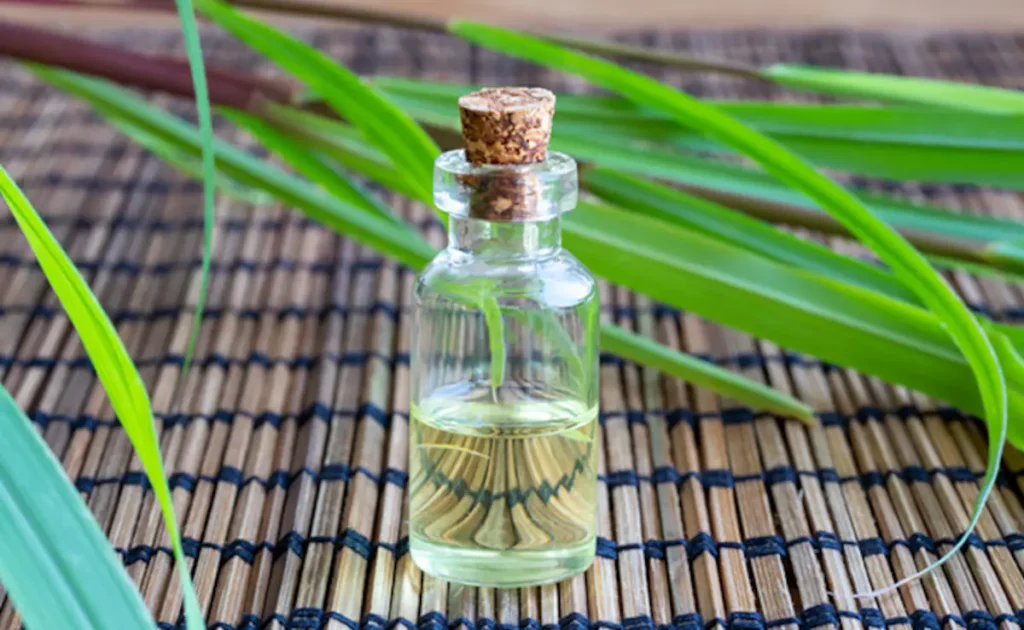In a world increasingly drawn to natural remedies, Lemongrass Oil has emerged as a versatile and potent essential oil with a myriad of health and wellness benefits. Derived from the leaves and stalks of the lemongrass plant (Cymbopogon citratus), this citrusy, herbaceous oil has been used for centuries in traditional medicine, particularly in Southeast Asia. Today, modern science is catching up, validating many of its historical uses and uncovering new applications. In this detailed guide, we’ll explore the science-backed benefits of Lemongrass Oil, its practical uses, and safety considerations.
MAJESTIC PURE Lemongrass Essential Oil | 100% Pure and Natural Lemongrass Oil | Premium Grade Essential Oils for Hair Care, Home Diffusers, Skin, Aromatherapy, Massage and Humidifiers
1. Antimicrobial Powerhouse
One of the most celebrated benefits of Lemongrass Oil is its potent antimicrobial activity. Rich in compounds like citral, geraniol, and myrcene, this oil exhibits broad-spectrum effects against bacteria, fungi, and even certain viruses. A 2012 study published in the Journal of Advanced Pharmaceutical Technology & Research found that Lemongrass Oil effectively inhibits the growth of Staphylococcus aureus and Escherichia coli, two common pathogens responsible for infections.
Its antifungal properties are equally impressive. Research shows that Lemongrass Oil can combat stubborn fungi like Candida albicans, making it a natural alternative to synthetic antifungal agents. For topical use, diluting a few drops in a carrier oil and applying it to affected areas may help treat skin infections or nail fungus.
2. Natural Anti-Inflammatory Agent
Chronic inflammation is linked to numerous health issues, from arthritis to heart disease. Lemongrass Oil contains citral, a compound known to suppress inflammatory cytokines in the body. A 2014 study in the Journal of Ethnopharmacology demonstrated that Lemongrass Oil reduced inflammation in rodents with edema, suggesting its potential for managing conditions like osteoarthritis or tendonitis.
For those with joint pain, massaging diluted Lemongrass Oil into sore areas can provide relief. Its warming effect also improves blood circulation, further aiding in inflammation reduction.

3. Pain Relief and Muscle Relaxation
Beyond inflammation, Lemongrass Oil acts as a natural analgesic. Its ability to block pain signals makes it effective for headaches, muscle spasms, and even menstrual cramps. A 2017 study highlighted that inhaling Lemongrass Oil reduced migraine intensity in participants, likely due to its calming scent and bioactive compounds.
Athletes or individuals with muscle strain can benefit from a post-workout massage blend. Mix Lemongrass Oil with coconut oil to ease tension and accelerate recovery.
4. Stress and Anxiety Reduction
The aroma of Lemongrass Oil is more than just refreshing—it’s therapeutic. In aromatherapy, its citrusy scent is known to alleviate stress and uplift mood. A 2015 study in the Journal of Alternative and Complementary Medicine found that participants who inhaled Lemongrass Oil experienced significantly lower anxiety levels compared to a control group.
Diffusing Lemongrass Oil at home or adding a few drops to a bath can create a calming environment. Its nervine properties also help combat mental fatigue, making it ideal for meditation or focus-enhancing routines.

5. Skin Health and Acne Control
Lemongrass Oil is a boon for skincare, thanks to its astringent and antiseptic qualities. It tightens pores, reduces excess oil, and fights acne-causing bacteria. A 2016 study in Cosmetics noted that Lemongrass Oil’s antimicrobial activity makes it effective against Propionibacterium acnes, the bacteria behind breakouts.
For a DIY toner, mix Lemongrass Oil with witch hazel and apply it to clean skin. Always dilute it properly to avoid irritation.
6. Digestive Health Support
In traditional medicine, Lemongrass Oil is prized for aiding digestion. It stimulates gastric juices, easing bloating, cramping, and indigestion. A 2012 animal study revealed that Lemongrass Oil protects the stomach lining and reduces ulcers.
For digestive relief, blend a drop of food-grade Lemongrass Oil with honey in warm water or massage diluted oil onto the abdomen.
7. Natural Insect Repellent
Ditch the DEET—Lemongrass Oil is a safer alternative for repelling mosquitoes, ticks, and flies. Its high citronellal content masks human scents that attract insects. Research in Parasitology Research (2011) found that Lemongrass Oil provided 95% protection against mosquitoes for up to three hours.
Create a repellent spray by mixing Lemongrass Oil with water and apple cider vinegar. Apply it to skin or clothing before outdoor activities.

8. Detoxification and Diuretic Effects
Lemongras Oil promotes detoxification by enhancing kidney function and increasing urine output. This diuretic effect helps flush toxins, excess salts, and uric acid from the body. A 2001 study in Rodrigues et al. confirmed its diuretic properties in rats.
Add a drop of food-grade Lemongrass Oil to herbal tea to support kidney health.
9. Hair Care and Dandruff Control
Scalp health improves with Lemongras Oil’s antifungal and anti-inflammatory actions. It reduces dandruff, strengthens hair follicles, and adds shine. A 2015 trial in Complementary Medicine Research showed that a Lemongras Oil scalp treatment significantly reduced dandruff within seven days.
Mix a few drops into your shampoo or create a scalp massage oil with jojoba as a base.
10. Weight Management Aid
Though research is limited, Lemongras Oil may support metabolism and fat breakdown. Its detoxifying effects and ability to reduce water retention can complement a weight-loss regimen. Incorporate it into massage oils or diffuser blends to curb cravings.

Safety and Usage Tips
While Lemongras Oil is generally safe, dilute it with a carrier oil (e.g., coconut, almond) before topical use. Avoid applying undiluted oil, as it may cause irritation. Pregnant women and children should consult a healthcare provider before use. Always opt for high-quality, pure Lemongras Oil from reputable brands.
Popular methods of use include:
- Aromatherapy: Diffuse 3–5 drops.
- Topical application: Mix 2–3 drops per tablespoon of carrier oil.
- Ingestion: Only use food-grade oil, sparingly.
Conclusion
From fighting infections to soothing stress, Lemongras Oil is a multifaceted essential oil worthy of a spot in your wellness toolkit. Its antimicrobial, anti-inflammatory, and aromatic properties make it a natural solution for countless modern-day health challenges. By integrating Lemongras Oil into your daily routine—whether through skincare, aromatherapy, or massage—you can harness the power of nature to enhance your physical and mental well-being. As with any supplement, moderation and proper usage are key to unlocking its full potential.
